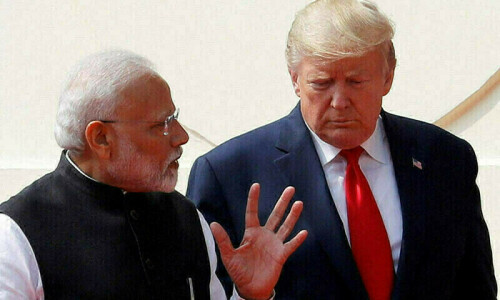The circumstances in which Bhutto took over as President of Pakistan were too thorny and too hard for even a seasoned politician to tackle. The economy was in tatters, national institutions were suffering from maladministration, trade faced uncertain conditions, and the people were suffering from despondency and lack of confidence. Loss of identity had gripped the psyche of the nation. Bhutto knew it well and he had to take care of the remaining country — his “New Pakistan” — that had sunk to rock bottom.
He was aware of the sources that could be tapped to revitalise the economy and create a viable structure. No doubt this was the most important and pressing challenge, but he had his limitations. Although he had the support of the largest party in the parliament (88 MNAs in a house of 144), he had taken charge under the umbrella of a Martial Law. Plus, he was continuously haunted by issues like securing release of the over 90,000 POWs from India, getting Pakistan’s lands vacated from India, reorganisation of economic management and the like. As he settled down after freeing Shaikh Mujib, his immediate worry was how to re-establish ties with the world community.
As February began a host of new problems ensued. Bhutto had withdrawn the ban on National Awami Party (NAP) in his first address as President but there was a pressing demand for lifting Martial Law and restoration of democracy. To begin with, on February 10, 1972 he announced the holding of local bodies’ elections on March 15. He also decided to hold the first sessions of four provincial assemblies on March 23. Bhutto thought that it would meet some of the demands of political parties to some extent but it was futile.
Some of his cronies advised him to convene the National Assembly session and discuss the immediate pressing issues, but Bhutto, as usual, took the decision on his own — not at present. He knew that the issue of East Pakistan’s cessation would definitely be raised and that would open a Pandora’s Box. Moreover, there was a constitutional and technical issue — the mention of East Pakistan in the Constitution. At that time there were no ties between Bangladesh and Pakistan. Therefore, he thought it proper to avoid such an act that could put the Party in hot waters, already confronted by many knotty issues.
As Bhutto prepared for a breakthrough during February, police in Khyber Pakhtunkhwa (then NWFP), Punjab’s capital Lahore, Faisalabad and many other cities resorted to strike, pressing for their demands for restructuring of their service and raise in salaries. In Pakistan this was the first strike of its kind and there was a need to handle it properly so that it did not spread to other parts of the country. Police strike had crippled the whole system, but in Punjab, Governor Ghulam Mustafa Khar, asked the PPP jialas to take over the police stations and roads. Enthusiastic workers took over and the system worked well.
On February 27, 1972, Dr Mubashar Hassan, the federal finance minister and a close aide of Bhutto, announced the new pay scales, extending benefit to 125,000 employees including the police in all provinces. The scheme envisaged reducing the then prevalent large number of pay scales to 15. The benefit to the employees ranged between 10 to 40 per cent pay raise but the main characteristic was that on reaching the maximum of any scale, he/she would be entitled to the next pay scale.
Besides, they were granted fringe benefits like house rent, out-station allowance, etc.
This appeased the government employees to some extent. But no one could understand why Bhutto got annoyed by the police strike, perhaps, as Stanley Wolpert put it, “… Zulfi was always suspicious of everyone around him. He usually feared some conspiracy or the other, and he himself was so astute at realpolitik that he suspected his closest colleagues and allies of plotting against him.”
On March 3, 1972, Bhutto addressed the nation in which he specifically mentioned the recent police strike as “…the most unpleasant development”, in simple words “…it was not a strike, it was a mutiny … a mutiny at a time when the Armed Forces are facing an enemy … but we faced it … I congratulate you and salute the gallant people of Lahore for having responded to the call of the Governor of Punjab.” He hinted that he knew the reasons behind the mutiny, and the elements that had been working towards it for a month, ostensibly pointing towards the NAP in KP and Balochistan. However, he pledged to bring about swift reforms in the police; perhaps he had some other ideas to revamp the civilian armed forces by some other means.
shaikhaziz38@gmail.com
















































Dear visitor, the comments section is undergoing an overhaul and will return soon.